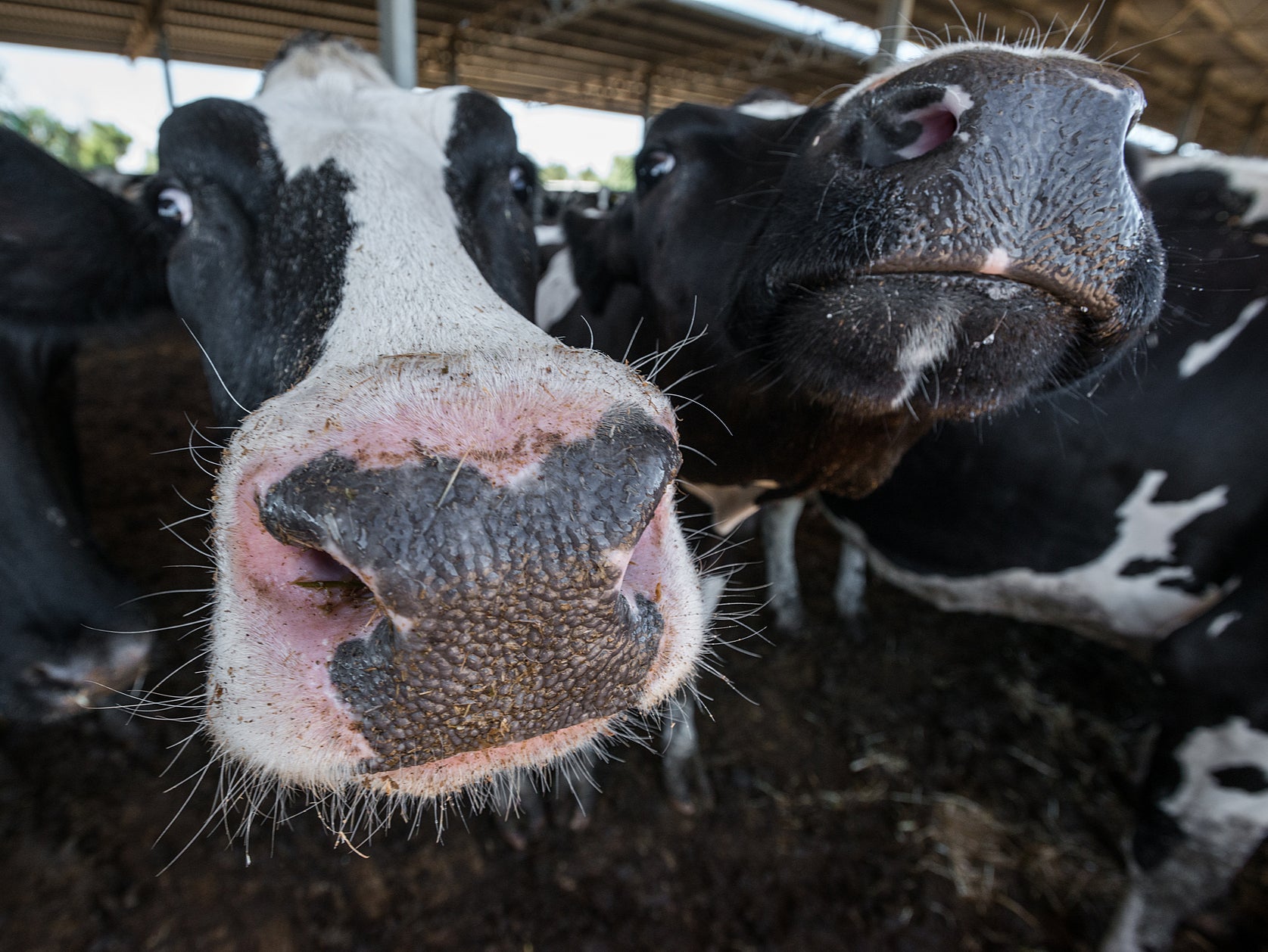A UK-Australia trade deal would be catastrophic for the environment and animal welfare
The UK has a huge opportunity post-Brexit to use tariffs and quotas in trade deals to help reach net zero and provide incentives for the kind of modern, sustainable farming we want to see


Your support helps us to tell the story
From reproductive rights to climate change to Big Tech, The Independent is on the ground when the story is developing. Whether it's investigating the financials of Elon Musk's pro-Trump PAC or producing our latest documentary, 'The A Word', which shines a light on the American women fighting for reproductive rights, we know how important it is to parse out the facts from the messaging.
At such a critical moment in US history, we need reporters on the ground. Your donation allows us to keep sending journalists to speak to both sides of the story.
The Independent is trusted by Americans across the entire political spectrum. And unlike many other quality news outlets, we choose not to lock Americans out of our reporting and analysis with paywalls. We believe quality journalism should be available to everyone, paid for by those who can afford it.
Your support makes all the difference.Liz Truss’s determined effort to secure a UK-Australia deal in the run up to the recent G7 summit, and in time for Scott Morrison’s UK visit this week, reflects the importance this government places on trade in its vision for a “Global Britain”.
However, given the prime minister’s parallel and much-welcomed ambition to be global green leader, it is concerning that ministers are preparing to sign a deal that could drive a coach and horses through efforts to put UK farming on a sustainable footing.
Without effective safeguards, the benefits of such a deal would be dwarfed by the catastrophic damage to our environmental standards.
Right now, the UK is a top performer when it comes to tackling climate change, ranking fifth in the world on the Climate Change Performance Index. Australia – by contrast – is number 54 out of 60.
And justifiably so, given that it has the highest rate of deforestation in the Organisation for Economic Co-operation and Development (OECD): the rate of tree cover loss increased by 34 per cent between 2016-18, with most of those trees being cut down to clear space for the livestock industry.
On top of this, Australian farming allows the use of 71 highly hazardous substances and thousands more types of pesticides that are currently banned in the UK, including neonicotinoids, which harm the pollinators at the root of our food system, such as bees.
The environmental standards of some foods produced in Australia are so far below the standards upheld by UK farmers that these products shouldn’t be sold in the UK at all, let alone given open access to UK markets with a zero tariff, zero quota trade deal.
This isn’t simply about free trade versus protectionism. It is about delivering the best results and most sustainable approach for people and the planet – and that means taking into account the environmental impact of our food production.
Many UK farmers are already producing to high standards and are at the forefront of developing the greener farming of the future. If they are to succeed, they will need the full support of a government with a forward-looking approach to trade.
If the UK government is serious about global environmental leadership, then it must get serious about sustainable farming – not just here in the UK, but across every country we import food from.
Unfettered access to UK markets should reward those who meet our standards on climate, nature and animal welfare – and should not prioritise outdated farming systems, like Australia’s, which are fuelling the climate and nature crisis.
Agreeing to a zero quota and zero tariff trade deal with Australia sets a dangerous precedent. The US and Canada, both countries with intensive agricultural systems that operate to lower standards than the UK’s, will likely demand similar access, and - further down the line – MERCOSUR countries, including Argentina, Brazil, Paraguay and Uruguay, may ask for the same.
This could mean opening the UK market to agricultural imports that have contributed to widespread deforestation in the Amazon, undermining the significant work of UK and international partners to secure supply chains that are free of deforestation and conversion.
Currently, there are no UK laws to enforce good environmental standards when it comes to what we’re allowed to import. That means Liz Truss can agree a trade deal with Australia – a laggard on climate and nature – while claiming to be maintaining standards, because those environmental standards simply don’t exist. It’s time that changed.
The Trade and Agriculture Commission, tasked by the government to look at the best approach to trade, has recommended developing core standards for trade, with minimum requirements for both the environment and animal welfare – and we agree with them.
We shouldn’t be rushing into any trade deals before those standards are in place, as the failure to get this right could see us exporting our emissions or our environmental footprint long into the future.
The UK has a huge opportunity post-Brexit to use tariffs and quotas in trade deals to help reach net zero and provide incentives for the kind of modern, sustainable farming we want to see. We mustn’t squander it.
There is no economic benefit to be gained from trading our planet away. If we take the time to get them right, trade deals can be a huge win-win, benefiting the UK economy and helping to protect the planet – our one shared home – for both people and nature.

Join our commenting forum
Join thought-provoking conversations, follow other Independent readers and see their replies
Comments